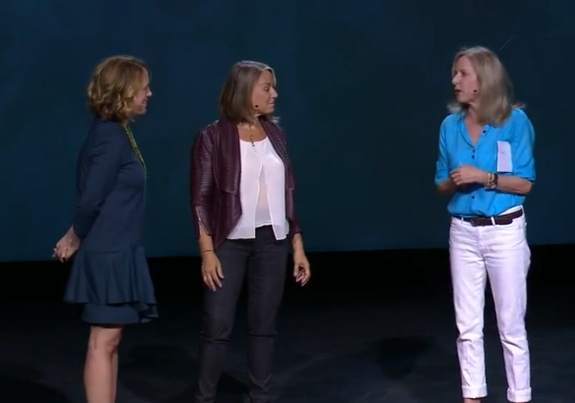We did it in the larger culture, and we're doing it in marriage.
在其他文化中我們已經這么做了,現在我們把它帶到婚姻中。
Right, no question about it. But it's interesting, the millennials actually want to be very good parents
是的,這一點毫無疑問。但有趣的是,如今千禧一代非常渴望成為合格的家長,
whereas the generation above them wants to have a very fine marriage but is not as focused on being a good parent.
而他們的上一代人希望有個美滿的婚姻,但卻不向他們一樣專注于成為合格的家長。
You see all of these nuances.
你可以看到這些細微的差別。
There's two basic parts of personality: there's your culture -- everything you grew up to do and believe and say -- and there's your temperament.
人格有兩個基本構成部分:你的文化--成長過程信仰和言行--以及性格。
Basically, what I've been talking about is your temperament.
我討論的基本上都是性格。
And that temperament is certainly going to change with changing times and changing beliefs.
而性格一定會隨著時間和信仰的改變而改變。
And in terms of the paradox of choice, there's no question about it that this is a pickle.
就選擇悖論而言,這確實是個兩難的境地。

There were millions of years where you found that sweet boy at the other side of the water hole, and you went for it.
千百萬年以來,如果人們在河邊看到心動的對象,便會去爭取。
Yes, but you -- I do want to say one more thing.
是的,但是...還有一件事。
The bottom line is, in hunting and gathering societies, they tended to have two or three partners during the course of their lives.
歸根結底,在狩獵及采集社會中,人們一生中通常有2到3個伴侶。
They weren't square! And I'm not suggesting that we do, but the bottom line is, we've always had alternatives.
他們并不是兩兩相對的。我當然不是建議我們也這么做,但重要的是我們始終可以做出其他選擇。
Mankind is always -- in fact, the brain is well-built to what we call "equilibrate," to try and decide:
人類一直如此--實際上,人類大腦的構造是平衡對稱的,去試探或下決心:
Do I come, do I stay? Do I go, do I stay? What are the opportunities here? How do I handle this there?
來或走?去或留?留下來有什么樣的機遇?怎么處理這件事?
And so I think we're seeing another play-out of that now.
我想現在上演的正是大腦決策的另一出戲。
Well, thank you both so much.
非常感謝兩位。
I think you're going to have a million dinner partners for tonight! Thank you, thank you.
我想你今晚要和很多人共進晚餐了。謝謝!謝謝!











